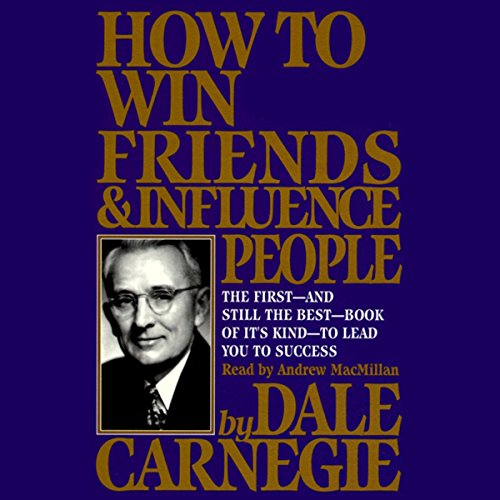Introduction
Dale Carnegie’s “How to Win Friends and Influence People” is a timeless self-help classic that delves into the fundamental techniques in handling people, ways to make people like you, and strategies to persuade them to your point of view. Written in an engaging and easy-to-understand style, Carnegie’s book offers practical advice, backed by historical examples, to help anyone improve their interpersonal skills and succeed in a personal and professional capacity.
Fundamental Techniques in Handling People
Understanding Human Nature
- Avoid Criticism: Carnegie argues that criticizing others doesn’t yield anything positive and often leads to resentment.
- Give Honest Appreciation: Genuine appreciation, as opposed to flattery, is key to influencing people positively.
- Arouse an Eager Want: Understanding what others desire, and showing them how to get it, is a powerful way to influence.
Building Strong Relationships
- Empathy: Putting yourself in others’ shoes is crucial for understanding and influencing their actions.
- Listening: Active listening shows respect and fosters a positive relationship.
- Encouragement: Encouraging others to talk about themselves and their interests builds deeper connections.
Resolving Conflicts
- Avoid Arguments: Arguments cannot be won and should be avoided to maintain positive relationships.
- Admit Faults Quickly: Admitting your mistakes quickly and emphatically can defuse tension and earn respect.
- Respect Others’ Opinions: Never say, “You’re wrong,” but rather discuss different perspectives respectfully.
Ways to Make People Like You
Creating a Positive First Impression
- Smile: A simple smile is a powerful tool in making a good first impression.
- Remember Names: Remembering and using people’s names shows respect and interest in them.
- Be a Good Listener: Encourage others to talk about themselves to create a bond.
Enhancing Personal Connections
- Talk in Terms of Other’s Interests: Talking about what interests the other person helps build rapport.
- Make the Other Person Feel Important: Do this sincerely, not manipulatively, for a genuine connection.
- Be Genuinely Interested in Other People: Show real interest in others to foster meaningful relationships.
Fostering Lasting Relationships
- Avoid Contradicting: Respecting others’ opinions, even if you disagree, helps maintain harmony.
- Be Personable and Warm: Warmth and friendliness go a long way in sustaining relationships.
- Show Appreciation: Regularly expressing genuine appreciation can deepen bonds.
Strategies to Win People to Your Way of Thinking
Persuasion Techniques
- Start in a Friendly Way: A friendly approach is more likely to open people to your ideas.
- Get the Other Person Saying “Yes, Yes” Immediately: Begin conversations on points of agreement to create a positive atmosphere.
- Let the Other Person Do a Great Deal of the Talking: This helps them feel that the idea is theirs, increasing acceptance.
Handling Disagreements
- Show Respect for the Other Person’s Opinions: Acknowledge their views before presenting your own.
- If You Are Wrong, Admit It: Admitting mistakes clears the way for honest dialogue.
- Try Honestly to See Things from the Other Person’s Point of View: This demonstrates empathy and understanding.
Influencing Without Offending
- Let the Other Person Save Face: Protecting the other’s ego can make them more receptive to your ideas.
- Praise Every Improvement: Encouragement and positive reinforcement are powerful motivators.
- Make the Fault Seem Easy to Correct: This approach encourages change without creating resentment.
Conclusion
Dale Carnegie’s “How to Win Friends and Influence People” is an invaluable guide to improving interpersonal skills, building strong relationships, and influencing others positively. By adopting Carnegie’s principles, you can navigate social interactions more effectively, foster better relationships, and achieve personal and professional success. Remember, the core of Carnegie’s philosophy is rooted in respect, empathy, and genuine interest in others, which are timeless principles for successful human interactions.

